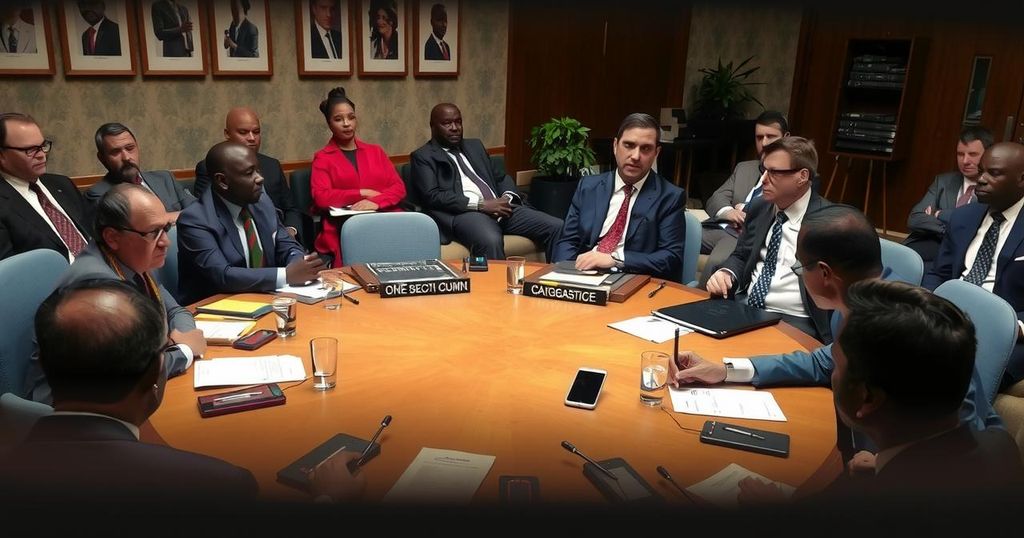The UN Security Council convened to discuss escalating violence in eastern DRC, with UN Special Representative Bintou Keita advocating for collaborative peace efforts at an upcoming summit involving DRC, Angola, and Rwanda. Amid ongoing insecurity from armed groups, she underscored the importance of governance reforms, humanitarian response funding, and initiatives addressing gender-based violence.
On December 15, a significant summit will convene leaders from Angola, the Democratic Republic of the Congo (DRC), and Rwanda to address ongoing violence in eastern DRC. UN Special Representative Bintou Keita highlighted the need for collaborative efforts among local, national, and regional actors to foster lasting peace amid the ongoing unrest in provinces such as North Kivu and Ituri, which continue to suffer due to operations by armed groups like ADF, M23, CODECO, and Zaïre.
Keita noted the importance of mediation initiatives, particularly the Luanda process, and expressed appreciation for the progress achieved, including the ceasefire agreement with Rwanda. In her briefing to the UN Security Council, she underscored that governance reforms initiated since last year’s elections aim to stabilize the country by improving access to social services and managing natural resources effectively. However, she urged stakeholders to work together to prevent tensions surrounding possible constitutional revisions.
While outlining the dire security climate in eastern DRC, Keita reported a worrying increase in territorial control by armed groups, particularly the M23, which remains unbound by the ceasefire accord. She indicated that the ongoing exploitation of natural resources continues to fuel conflict and urged regional cooperation to combat illegal resource activities. Furthermore, nearly 6.4 million individuals are displaced due to violence and humanitarian crises, and Ms. Keita stressed the need for enhanced funding for the Humanitarian Response Plan.
Notably, during the close of the 16 Days of Activism Against Gender-Based Violence campaign, she revealed that over 90,000 incidents of gender-based violence have been recorded this year, showcasing both the ongoing risks and the commitment of DRC authorities to address these issues. Keita applauded the International Criminal Court for renewing investigative actions focused on crimes in North Kivu, emphasizing the need for investment in peace and stability from marginalized groups, particularly women, who are essential to restoring dignity and security in the region.
The Democratic Republic of the Congo has been embroiled in conflict for decades, with eastern provinces experiencing some of the most severe violence, largely due to the presence of multiple armed groups vying for control of lucrative resources. The situation has been exacerbated by political divisions, social unrest, and recent governance challenges. The security dynamics are influenced by complex local grievances, cross-border issues, and international interests.
The recent briefing by UN Special Representative Bintou Keita highlighted critical challenges facing the Democratic Republic of the Congo, as violence continues to plague its eastern regions. With a significant summit forthcoming, the emphasis on collaborative efforts among stakeholders, particularly in terms of governance reforms and ceasefire agreements, will be crucial in establishing lasting peace. The alarming statistics regarding gender-based violence and displacement underscore the urgent need for comprehensive responses from both local authorities and international partners. Overall, the situation in the DRC requires sustained attention and coordinated efforts to ensure stability and recovery for its people, particularly marginalized groups, emphasizing the pivotal role they play in the peace process.
Original Source: news.un.org






